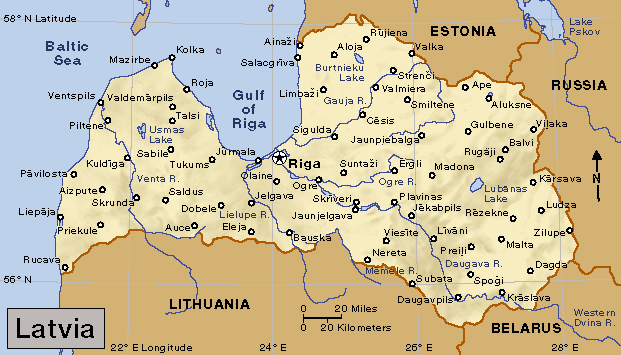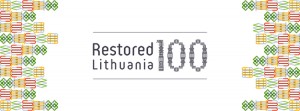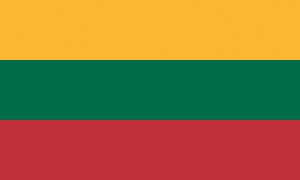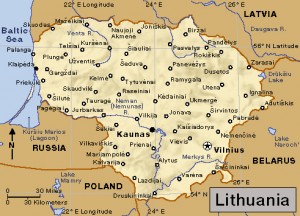Latvia 100
Friday, November 16th, 2018November 16, 2018
On Sunday, November 18, the northeastern European country of Latvia celebrates the centennial of its declaration of independence on Nov. 18, 1918. Latvia lies on the Baltic Sea, north of Lithuania, south of Estonia, and east of Belarus and Russia. The country was independent from 1918 to 1940, when Latvia and other nearby nations were forced to become part of the Soviet Union. Latvia regained its independence in 1991.
Centenary events center on Riga, the capital, under the theme, “I am Latvia.” Throughout November, there are celebrations of Latvian art, cinema, clothing, dance, music, photography, and sports, as well as historical presentations detailing the years prior to independence, the first Latvian provisional government, and the nation’s struggles with the Soviet Union. The Staro (Old) Riga festival of lights brightens parts of the capital’s old town, and a charity ball benefits the Riga Latvian Society, a public cultural organization founded in 1868. The Latvia in Mittens campaign reduces the chill of late autumn with the exchange of warm, colorful mittens knitted in traditional patterns.
Latvian independence celebrations will take place throughout the country as well as among Latvian populations in neighboring countries. Across the Atlantic Ocean in North America, Niagara Falls on the New York-Ontario border will be illuminated in the carmine and white of the Latvian flag on the night of November 17.
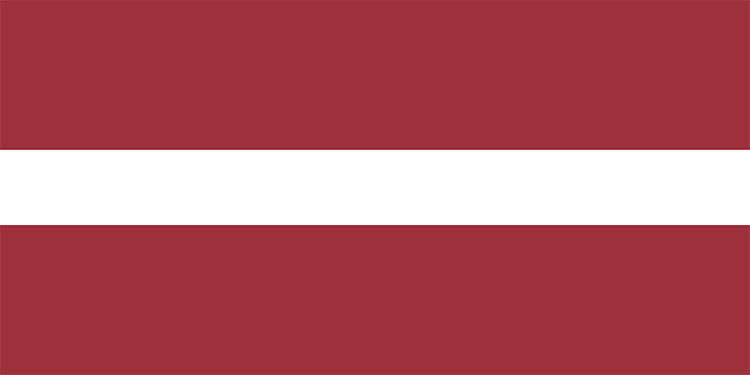
Latvia’s flag dates back to the 1200′s, when early Latvian peoples used it as a banner in battle. Credit: © Loveshop/Shutterstock
Before independence, Latvia was ruled at times by Germans, Lithuanians, Poles, Russians, and Swedes. Vikings once ruled the area too, as did the Teutonic Knights (an organization of German crusaders). Despite centuries of foreign dominance, Latvian people developed their own culture and traditions. The Latvian language is one of the oldest in Europe. It is related to Sanskrit, a language of ancient India.
During the late 1800′s, while under Russian rule, the Latvians organized an independence movement that gained momentum in the early 1900′s. On Nov. 18, 1918, just after the Russian Revolution and the end of World War I, Latvia proclaimed itself independent.
During World War II (1939-1945), Soviet and German troops occupied Latvia in turns, and after the war the country was a Soviet republic. Many Latvians suffered under the Soviets, who suppressed the Latvian language, flag, national anthem, and other cultural traditions. Many Latvians still expressed their national spirit, however, and opposed Soviet rule.
On May 4, 1990, the Latvian parliament declared the restoration of independence and called for a gradual separation from the Soviet Union. In September 1991, the Soviet Union recognized Latvian independence. A few months later, the Soviet Union ceased to exist.


